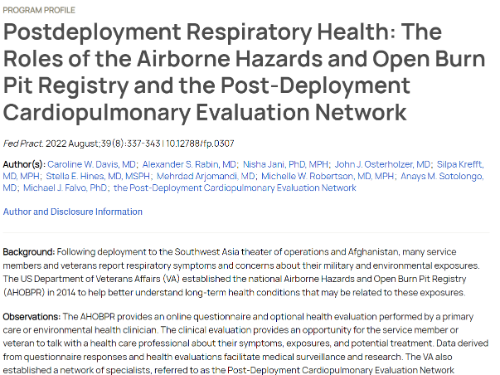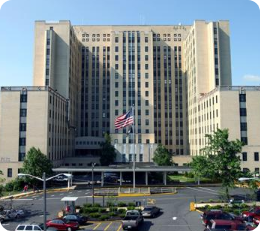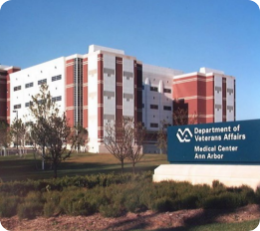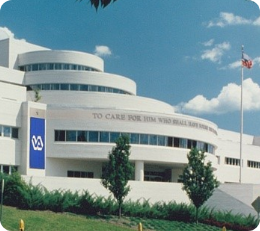War Related Illness and Injury Study Center
Post Deployment Cardiopulmonary Evaluation Network
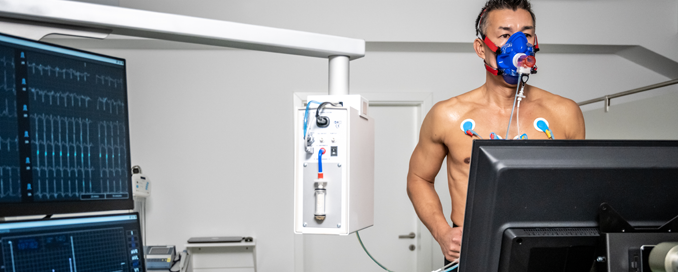
Post Deployment Cardiopulmonary
Evaluation Network (PDCEN)
Delivering Specialized Care and Consultation for Veterans
To expand and standardize specialized clinical evaluations for Veterans with specific respiratory health issues across the nation, The Airborne Hazards and Burn Pits Center of Excellence established a network of expert clinicians and researchers in respiratory health. This network is referred to as the Post-Deployment Cardiopulmonary Evaluation Network (PDCEN). The Center of Excellence is a part of this network and leads efforts to develop clinical approaches, best practices and research that pertains to the broader questions of respiratory health and airborne hazard exposures. Learn more about the PDCEN from AHBPCE co-director, Anays Sotolongo, MD, by watching the video below:
For Veterans who are selected for specialty evaluation from the Airborne Hazards and Open Burn Pit Registry, the PDCEN allows Veterans to be evaluated at a site closest to where they reside. Findings from each evaluation are then shared with the Center of Excellence for further research and information dissemination.
About the PDCEN
The network consists of VA physician scientists who conduct specialized research and clinical evaluations for Veterans with concerns about their post-deployment health, including unexplained shortness of breath or difficulty breathing.
In support of the Airborne Hazards and Burn Pits Center of Excellence's mission to advance the health and care of Veterans through research, clinical care and education, the Post-Deployment Cardiopulmonary Evaluation Network (PDCEN) is committed to clarifying and refining diagnoses, as well as determining their relationship to exposures, by providing comprehensive standardized clinical evaluations. Knowledge gained from these evaluations allows the PDCEN to inform care providers on best practices including treatment recommendations, support research efforts, and provide information to various stakeholders to improve the health and care of Veterans with military exposures.
The network currently includes the following sites:
All current PDCEN site directors have unique expertise and interest in health issues that may be connected to airborne hazards exposure. They also have academic appointments at affiliated universities. Each site leverages unique resources from their university affiliates, including clinical and research training opportunities for university students, to enhance the network.
The network works collaboratively with the Center of Excellence to develop research questions, gather data and conduct research that supports the development of new clinical care guidelines for Veterans who have been exposed to airborne hazards and burn pits.
You've been the most helpful person I've worked with in the VA since I enrolled in VA healthcare nearly 8 years ago.”
How Clinical Work Improves Veteran Care
Observations gained through the clinical process—either through the PDCEN or at the Center of Excellence have allowed our researchers to identify hypotheses and form research questions that can dig deeper into the effects of airborne hazard and burn pit exposure. As trends are recognized and effective treatment protocols are established, this research brings us closer to a higher standard of quality care for our nation's Veterans. Listen to AHBPCE co-director, Michael Falvo, PhD, discuss this research below:
